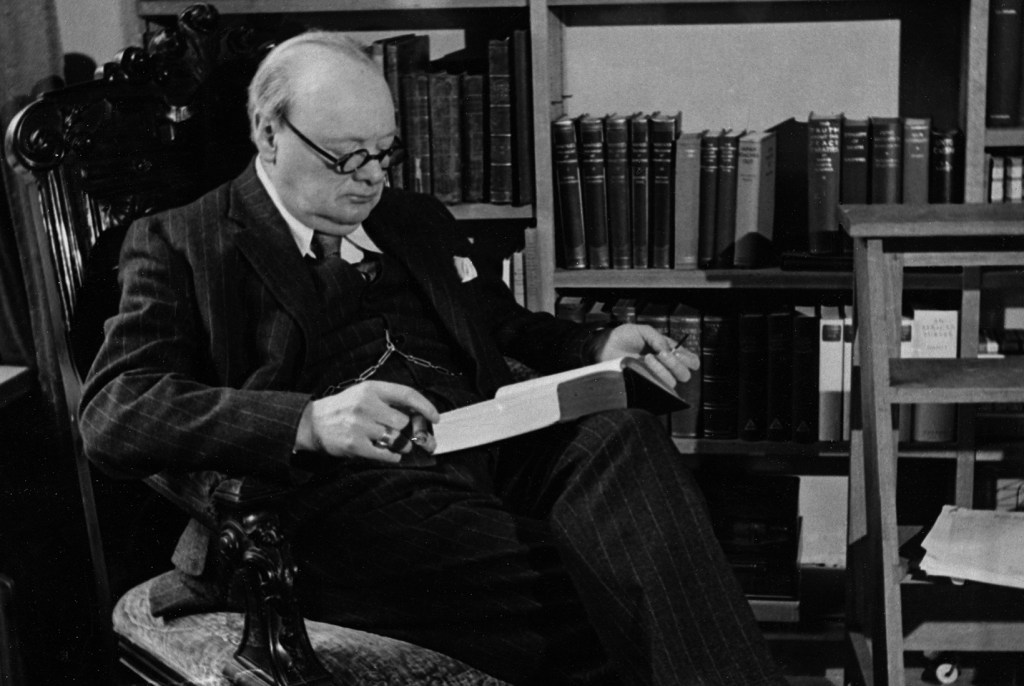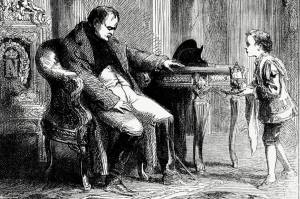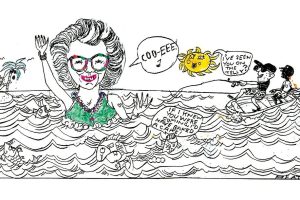Working from home has been on the rise for years. No one expected the latest surge to happen in the way it has, but now that we’re here, what can we learn about home-working from those who have already done it?
The first rule — even when times are normal — is: make sure you stay at home. Victor Hugo resisted the temptation to go out by ordering his valet to hide all his clothes. The Greek statesman Demosthenes achieved the same result by shaving half of his head. Whenever he felt the need for exercise, Cardinal Richelieu jumped over his furniture.
But even at home, the scope for procrastination is endless. Any writer will tell you that the first result of a deadline is your ironing gets done. So you need a routine. The good news is that, unlike in the office, you can create your own. Honoré de Balzac rose at midnight and worked until dawn, when he treated himself to an hour-long bath. The latter element was copied from Napoleon, though Balzac also channeled the Two Ronnies — he worked at a desk lit by four candles.
Another good thing is that you can take your time to get things right, improving your work gradually rather than aiming for perfection first time. As P.G. Wodehouse finished each page of a book he was writing, he would pin it to his office wall at a height indicating how good it was. Pages still needing work were lower down, and after being rewritten would make their way upwards. The idea was to get the whole manuscript up to the picture rail.
Food is tricky. You can use it as an incentive — the snooker player Steve Davis allowed himself a cheese and Marmite sandwich only after potting a certain number of balls in practice — but too much incentivization will threaten your waistline. Mind you, the opposite problem can also arise: Isaac Newton sometimes concentrated so hard on his work that he forgot about his dinner and the cat ate it.
Keep an eye on your caffeine levels. It’s a good idea to use a small cup rather than a mug — most of the time you’re only making coffee as work-avoidance, rather than because you really want it. Learn from British politician Tony Benn, whose mug held a pint of tea: he drank a mug per hour, and ended up in hospital with polyneuritis.
One advantage of working from home is that you won’t have to put up with irritating colleagues. Although you might start to find that you need them, as grist to your creative mill. In this case follow the lead of Henrik Ibsen, who had a portrait of August Strindberg facing his desk. ‘I cannot write a line,’ said Ibsen, ‘without that madman standing and staring down at me with his mad eyes.’
Inspiration can come in many forms. Hilary Mantel counters writer’s block by taking a shower. Albert Einstein solved tricky problems by playing the violin as he contemplated them. Or you could take an afternoon nap. Winston Churchill favored them, claiming they allowed him to pack 36 hours’ work into only 24. Ronald Reagan was another fan. However the president left orders to be woken in case of an emergency — ‘even if I’m in a cabinet meeting’.
This article was originally published in The Spectator’s UK magazine. Subscribe to the US edition here.


















